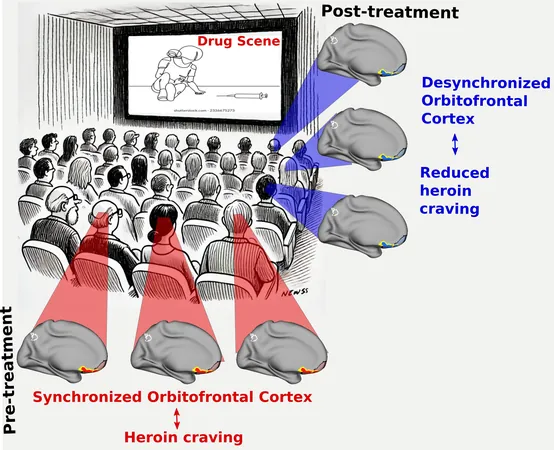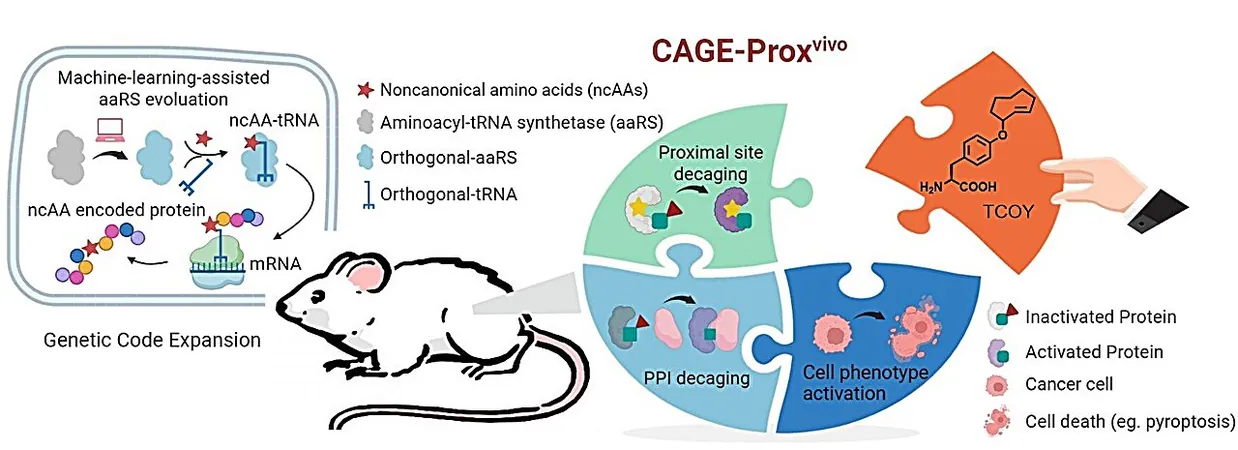
Unlocking the Brain's Secrets: Groundbreaking Study Reveals How Heroin Addiction Alters Neural Responses
2025-05-14
Author: Yu
New Insights from ‘Trainspotting’ and Brain Science
A riveting study from Mount Sinai has unveiled shocking insights into the brain of individuals grappling with heroin addiction. Researchers focused on the orbitofrontal cortex (OFC), a brain region crucial for decision-making and craving, illuminating how it disproportionately reacts to drug-related cues. This discovery came to light while participants watched the acclaimed film "Trainspotting," a 1996 narrative that dives deep into the world of heroin use in Scotland.
The Dramatic Impact of Treatment on Brain Functioning
Significantly, the study revealed that the OFC's bias toward drug stimuli diminishes in individuals who pursue treatment and maintain sobriety. Published in the journal *Brain*, these findings underscore the possibility of recovery at a neurological level, suggesting that effective treatment can help rewire brain responses.
Understanding Maladaptive Salience Attribution
Addiction can warp perception, a phenomenon known as maladaptive salience attribution, where the brain gives undue importance to drug cues over typical rewards like food or social interactions. This skewed focus makes it increasingly difficult for those struggling with addiction to find joy in everyday life.
A Revolutionary Approach to Research
Prior neuroimaging research had largely relied on static images. However, this study broke new ground by utilizing a dynamic film, allowing researchers to capture more nuanced brain responses. "In drug addiction, a drug-themed movie acts as a vivid mirror of reality, pulling participants into a world that static images fail to convey," explained Dr. Rita Goldstein, a leading neuroscientist involved in the research.
The Study Setup: Real Participants, Real Experiences
In a rigorous experimental setup, 30 participants undergoing treatment for heroin use watched the first 17 minutes of "Trainspotting" while strapped into fMRI machines, alongside a control group of 25 non-addicted individuals. This comprehensive study monitored brain reactions before and after 15 weeks of treatment, incorporating various therapeutic strategies.
Groundbreaking Findings and Future Directions
The results were promising. Researchers found that the OFC in those who abstained from drugs became less reactive to drug cues, highlighting a potential pathway toward recovery. Dr. Greg Kronberg noted, "Discovering this shift in brain function following just three months of treatment points to exciting opportunities for enhancing addiction therapies." The implications are profound: could real-time neurofeedback during drug-themed film viewings facilitate recovery? The Mount Sinai team is eager to explore this innovative approach.
What Lies Ahead for Addiction Research?
Although the study has its limitations—such as the reliance on a single film and the focus on a specific group of inpatients—researchers are enthusiastic about expanding this investigation. With plans to test additional films and diverse substance-use disorders, the future of addiction research is looking brighter than ever. Stay tuned as we follow these groundbreaking efforts in transforming the understanding of addiction and treatment.




 Brasil (PT)
Brasil (PT)
 Canada (EN)
Canada (EN)
 Chile (ES)
Chile (ES)
 Česko (CS)
Česko (CS)
 대한민국 (KO)
대한민국 (KO)
 España (ES)
España (ES)
 France (FR)
France (FR)
 Hong Kong (EN)
Hong Kong (EN)
 Italia (IT)
Italia (IT)
 日本 (JA)
日本 (JA)
 Magyarország (HU)
Magyarország (HU)
 Norge (NO)
Norge (NO)
 Polska (PL)
Polska (PL)
 Schweiz (DE)
Schweiz (DE)
 Singapore (EN)
Singapore (EN)
 Sverige (SV)
Sverige (SV)
 Suomi (FI)
Suomi (FI)
 Türkiye (TR)
Türkiye (TR)
 الإمارات العربية المتحدة (AR)
الإمارات العربية المتحدة (AR)